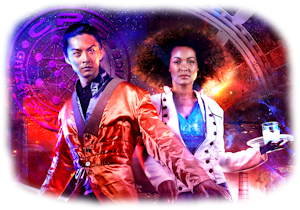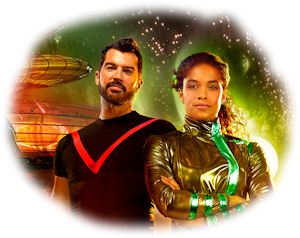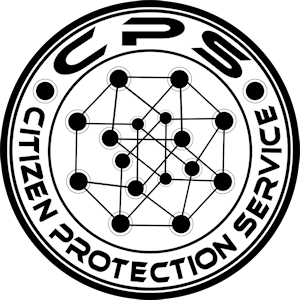Extras for Readers
Extras for Readers of My Books
Sometimes, a little extra information for readers and background information helps.
Central Galactic Concordance
Civilization • Name Pronunciation Guide • Minder Classifications
Notes on Civilization


Frontier planets: The Central Galactic Concordance has more than 500 member planets. When new planets are discovered, successfully terraformed, and opened for settlement, they are not eligible for CGC membership until they meet certain minimum standards, including medical care for all, tax collection, financial transparency, recordkeeping and availability, communications, infrastructure, and human rights and privileges. Exploration companies, terraform companies, and settlement companies all own rights to develop the planet, which the settlers must pay off as “settlement debt.” See how this can go awry in Last Ship Off Polaris-G.

Autotailor: Storefronts that have equipment for measuring clients, a stock of popular fabrics (and dye colors), and licensed clothing designs for making custom clothing on the spot. Some stores are generalists, some specialize, some are higher quality and have better designs than others. Off-the-rack (“set-size”) clothing stores (a.k.a. ready-to-wear) are still available and are cheaper. Shoes are similar — custom shoes vs. off-the-shelf. Most auto-tailored clothes can be completed in an hour or two; sometimes shoes take a day or two, especially if they're elaborate, like good running shoes or military-grade boots. In general, people don't throw much away, they trade things in at any retail store or sell them directly to the second-hand stores (a.k.a. “reuse store”) or donate them to charity to do the same. Most materials are recyclable.
Galactic Date and Time (GDAT): The official, galactic standard for date and time. It's based on the original Earth standard of 24 hours per day, 365 days per year. Expanding civilization soon discovered they needed a standard, because while the planets selected for settlement come close to Earth, planetary orbit and rotation variances made “local time” worthless if you were hoping to set up a meeting, or agree on a deadline. The local calendar is used for festivals, business hours, etc., but human birth dates, etc. are recorded in GDAT notation. A GDAT date of 3209.212 is the two hundred and twelfth day of the year 3209. It roughly correlates to the year 3709 on Earth, owing to an interregnum and subjective calendar variances in the early days of galactic exploration and settlement.

Kameleons: A secret program in the Citizen Protection Service for spies. The CPS implants personality overlays and remakes the body of a spy to send him/her into undercover situations. While the program is not officially acknowledged by the CPS, rumors abound, especially in the city of Ridderth on the planet Mabingion, which houses the largest base for Kameleons. Jess Orowitz (Jumper's Hope) is a former Kameleon.
The City of Spires (the setting for Minder Rising)
Planet: Capet Dedrum “Concordance Prime” (CFW EGSC X02553.61 Y355567.27 ZRA360.56 EEI 201C CM)
City: Spires
Day length: 23.54 Standard hours (local: 24 hours) / Year length: 379 days / Gravity: 0.989 G
Excerpt from Thirty Gems of the CGC: A Guide of What to See Next:
The city of Spires is the prime city of the planet Capet Dedrum. More commonly known as Concordance Prime, it is the seat of the Central Galactic Concordance's government. Spires is a gleaming showcase of graceful, artistic curved spires of glass and light and an iconic skyline famous throughout the civilized galaxy.
Spires and the surrounding metroplex is home to 8 million residents and hosts more than 1 million visitors per year. It is a beautiful coastal city with year-round temperate weather and enough rain that rainbows are a common occurrence. The city's environs harmonize with lush local greenery and lively fauna, including over fifty protected species of birds of paradise.
Tourist attractions include the Central League Remembrance Hall; the unique skyward lotus parks; exclusive 10-star restaurants, such as the galaxy-renowned Fermat's Last Repast; a thriving live performance district; and the city itself. The city's glass roadways, structures, and towers gleam with reflective sunlight during the day, and shine with spectacular programmed light shows at night, earning its nickname as the City of Light.
Visitors have an enviable choice of public transportation options for getting around in Spires, the most popular of which are the transparent skytrams, reminiscent of a thrill ride in some sections. Clear glass pedestrian walkways are plentiful, and all vehicles—ground, low air, and orbital—are well managed through centralized traffic control, making for safe, dependable travel. The city's space port offers shuttle transportation to the Capet Dedrum Space Station, a key hub for interstellar travel and commerce.
In addition to the High Council of the member planets in the Central Galactic Concordance, Spires is home to the Galactic Court, and the CGC Military Command. Weapons are strictly controlled in Spires.
Planet Capet Dedrum was discovered in GDAT 2299 and opened for colonization in GDAT 2355 during the First Wave of galactic expansion. Its Earth-like mass and orbital period, and its thriving post-terraforming ecosystems, have ensured its place as one of the most successful settled planets in the galaxy.
Pronunciation Guide
Because it sometimes makes me crazy not knowing how the science fiction or fantasy author intended proper nouns to be pronounced, here is a guide to some of them from my books. They're in alphabetical order by book.
Last Ship Off Polaris-G
- Anitra (ah-NEE-tra) Helden
- Gavril (GAH-vril) Danilovich (da-NEEL-oh-vitch)
- Aetheres (ath-EER-eez)
- Diamantov (dee-uh-MON-toff)
- Lizet (li-ZAY)
Overload Flux (Book 1)
- Berjalan (BEAR-jha-lonn)
- Beva Rienville (ree-EN-vil)
- DeBayaud (de-BAY-odd)
- Etonver (ee-TAHN-ver)
- Hildree (HILL-dree) Fannar (FAN-ar)
- Jerzi (JER-zee or YAIRT-see)
- Loyduk (LOY-duck) Pharma (FARM-uh)
- Luka (LOO-kah) / Lukascz (LOO-kash)
- Mairwen (MARE-win) Morganthur (MOR-gan-thur)
- Malamig (MAL-uh-mig)
- Rekoria (ree-KO-ria)
- Seshulla (se-SHUH-lah) Zheer (rhymes with “peer,” and the “zh” is pronounced like the ‘z' sound in the word “azure”)
- Ta'foulou (ta-FOO-loo)
- Vaylamoinen (vay-la-MOY-nen)
- Thang (TAHNG) Panjutamai (pahn-JOO-tuh-mye)
- Wai'maakole (wa-EE-ma-ah-KOHL-ay)
Minder Rising (Book 2)
- Cini (SEE-nee) Talavara (tah-lah-VAH-rah)
- Fiyon (FEE-yone) Machimata (mah-chi-MAH-tah)
- Imara (ih-MAR-ah) Sesay (SEE-say)
- Lièrén (LEE-eh-ren) Sòng (sohng, rhymes with lone)
- Rayle (rail) Leviso (le-VEE-so)
Zero Flux (Novella) (Book 2.5)
- Einar (EYE-nar)
- Lumi Silta (LOO-mee SILL-tuh)
- hvalreki ([h]vahl-REH-ki)
Pico's Crush (Book 3)
- Andra (AHN-drah) De Luna (day LOON-ah)
- Jerzi (JERR-zee, if you speak English, or YAIRT-see, if you speak Polish; Jerzi himself has given up correcting people one way or the other)
- Nila (NEE-la) Marbela (mar-BELL-ah)
- Pico (PEE-ko)
- Sojaire (so-ZHAIR, and the “zh” is pronounced like the ‘z' in “azure”) Celeyron (cell-AY-ron)
- Taliferros (tall-ee-FAIR-ohs) Radomir (RA-do-meer)
- Tremplin (trahm-PLAH)
- Valenia (va-LEN-ee-ah) Tamheurre (ta-MOOR)
Jumper's Hope (Book 4)
- Jessperin (JES-pare-in) Orowitz (oar-OH-wits)
- Kerzanna (ker-ZAH-na) Nevarr (nuh-VAR)
- Vahan (vuh-HAHN)
- Neirra (NEER-ah) Varemba (vah-REM-bah)
- Ridderth (RI-derth) on Mabingion (ma-BINGE-ee-uhn)
- Faraón (fa-ra-OWN) Azul (ah-sool)
- Malámselah (ma-LOM-sell-ah)
- Ritanjali (ree-tahn-JAH-lee) Bhatta (BAH-tah)
- Laraunte (La-RONT)
- Cadroy (ka-DROY) Joffalk (JOE-falk)
- Lamis (LAM-is)
- Saba (SAH-bah) Sachin (SA-chin)
- Tuzan (TOO-zan)
- Majiril (MAH-jih-rill)
- Gezi (GE[hard G like “get”]-zee) Wutala (woo-TAH-la)
- Soleil (soh-LAY-uh) Benoit (ben-WAH)
- DiGuilian (dee-JOOL-ee-uhn)
- Charrascos (chah-ROSS-kohs)
- Ayorinn (A [rhymes with “hay”] – YORE – in)
- Rashad (rah-SHAHD) Tarana (tah-RAH-nah)
“Pet Trade” in Embrace the Romance: Pets in Space 2
- Axur (AX-er) Tragon (TRAY-gon)
- Bethnee (BETH-nee) Bakonin (bah-KOH-nin)
Minder Classifications

Telepaths
Telepathy was the first officially recognized talent, and the most studied and tested. These are the known variants:
- Basic Telepath: Interacts with others from mind to mind. Some can detect truth, some can read from a distance, some can take over body control. See Last Ship Off Polaris-G, Overload Flux, Minder Rising, Pico's Crush, Jumper's Hope, Spark Transform.
- Viewer: “Ride along” with a subject to see, hear, and sometimes feel what the subject does, but with little access to the subject's thoughts or feelings.
- Illusionist: Create sensory-based illusions in their subjects. Higher-level talents can handle multiple subjects. Sometimes paired with empaths for crowd control. See Last Ship Off Polaris-G.
- Empath: Read and manipulate emotion. Higher-level talents can handle multiple subjects. Sometimes paired with illusionists for crowd control. See Last Ship Off Polaris-G, Minder Rising, Pico's Crush.
- Twister: Alter real memories and create credible false memories. Higher-level and more killed twisters make undetectable alterations, even to a skilled telepath. See Minder Rising, Jumper's Hope.
- Sifter: Manipulate human neurotransmitters, hormones, and receptors. All sifters have lie detection capabilities; some have talent detection capabilities. Sifters cannot be anesthetized by any drug that that acts on neurotransmitters. See Last Ship Off Polaris-G, Minder Rising, Pico's Crush, Jumper's Hope.
- Cleaner (a.k.a. eraser): Read, isolate, and wipe out memories. Unlike twisters, cleaners can't change memories, they can only erase, from tiny bits, to leaving a blank slate. See Jumper's Hope.
- Shielder: Protect themselves and others from most other minder talents. Can also impose shields on other minders to block them from using their minder talents. Higher-level talents don't need physical contact with the subject. See Last Ship Off Polaris-G, Pico's Crush, Jumper's Hope.
Telekinetics
Telekinesis was the second officially recognized talent. The categories are not as clearly delineated, and there is some disagreement about grouping healers with the tekes.
- Basic Telekinetic: Sense and affect the physical world from a distance. They can't affect air, e.g., create a wind, because they can't sense it. See Pico's Crush.
- Heavy teke (a.k.a. macro-teke): Affect big, heavy objects, but not good at small detail work.
- Fine teke (a.k.a. micro-teke): Very fine manipulation.
- Multi-weight teke: Both heavy and fine manipulation. Rare and valuable.
- Healer: Sense and repair damage in others. Some can heal themselves, and some can't. See Pico's Crush, Jumper's Hope.
- Ramper: Can affect their own metabolism and physiology to give themselves faster reaction times and more strength, for a limited time period. See Last Ship Off Polaris-G and Pico's Crush.
- Exciter: Stimulate the human body to feel pleasure or pain. In high demand for joyhouse work. See Overload Flux, Minder Rising.
- Animal Affinity: Ability to work with various types of mammals, birds, or amphibians and reptiles. Most specialize in one family (canids) or genus (e.g., domestic dogs). Pan-phyla talents are rare. See “Pet Trade” in Embrace the Romance: Pets in Space 2.
- Plant Affinity: Ability to work with various types of plants. Most specialize; pan-phyla talents are rare.
Patterners
The last of the classes to be recognized by the CPS, and the least studied. Categories are recent, vague, and not universally accepted.
- Forecaster: Ability to take disparate data, see the pattern, and predict the future. See Last Ship Off Polaris-G, Overload Flux, Jumper's Hope.
- Filer: Remember and retrieve everything seen, heard, smelled, felt, or read. General filers remember everything; specialty filers remember only certain things, e.g., sports statistics, or crime scenes. See Last Ship Off Polaris-G, Minder Rising, Spark Transform.
- Finder: Ability to ferrit out and locate. Most specialize, e.g., missing persons, financial malfeasance, interesting stories. See Overload Flux, Spark Transform.
- Fixer: Ability to create, understand, and fix physical and logical constructs. See Jumper's Hope, Spark Transform.
Polymaths
According the CPS, polymaths—someone with talents in all categories—are very rare. Multi-talents are not polymaths. See Last Ship Off Polaris-G, Minder Rising, Jumper's Hope.
Uniques
Talents that don't fit into any known category. To a skilled, high-level sifter, unique talents may seem to be a variant of one of the known categories. While the CPS recognizes that uniques exist, they don't have tests to detect them or classifications to describe them. See Overload Flux, Pico's Crush, Spark Transform.

